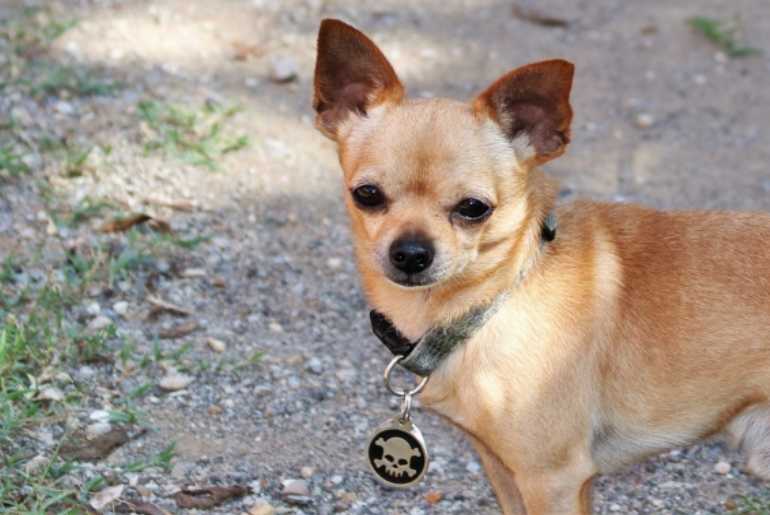The Chihuahua is a small breed of dog that has been popular for centuries. This breed is high risk because they are so small, and their immune system does not function as well as larger breeds of dogs. Vaccines can be very helpful in preventing diseases, but there are some risks involved with them as well.
The first thing you should do is to make sure that your Chihuahua has a current rabies certificate. Next, ask the vet about the other vaccines recommended for your pup at his or her age and weight.
The rule of thumb with puppies is to vaccinate them every 3-4 weeks until they are 16 weeks old, then once per year thereafter. Vaccines can be very beneficial if given correctly but risky if not given appropriately. Knowing the risks and benefits will help you choose what’s best for your pup!
How Do Vaccines Work?
A vaccine aims to help the body create immunity against diseases. A vaccine contains a “dead” or “modified” form of the virus or bacteria that causes disease. When given to your dog, this vaccine will help his or her immune system recognize and fight that particular virus or bacteria in the future.
Core vs Non-Core Vaccines
There are two types of vaccines-core and non-core. Core vaccines are those essential for all dogs, while non-core vaccines are only for certain dogs based on their lifestyle or geographic location.
Some of the most common core vaccines include rabies, distemper, hepatitis, parvovirus, and bordetella.
Why Do Chihuahua Puppies Need Multiple Vaccinations?
Puppies are at a higher risk of getting sick than adult dogs because their immune system is still developing.
For this reason, it is important to vaccinate them multiple times during their first few months of life to help protect them against disease. Chihuahuas should continue to get vaccinated every year as adults.
Chihuahua Vaccine Schedule
The recommended vaccine schedule for Chihuahuas is as follows:
- Rabies vaccine at 12 weeks old and again one year later
- Distemper vaccine at 12 weeks old and again one year later
- Hepatitis vaccine at 12 weeks old and again one year
Vaccine Schedule Table
| Age of Chihuahua | Recommended Vaccine |
| 5th Week | Parvovirus |
| 6th Week | *Combination vaccine (Distemper, parvovirus, and adenovirus type 2). Parainfluenza, bordetella bronchiseptica, for puppies at risk for kennel cough. |
| 9th Week | *Combination vaccine (parvovirus, distemper, and adenovirus type 2). |
| 12th Week | *Combination vaccine (parvovirus, distemper, and adenovirus type 2). For dogs at risk of kennel cough, parainfluenza and bordetella bronchiseptica are recommended. Lyme disease, if Lyme disease is a worry or if traveling to a Lyme disease-prone area. Rabies is a disease that affects humans (administered by a licensed veterinarian; re-vaccination requirements vary by state). |
| 15th Week | *Combination vaccine (parvovirus, distemper, and adenovirus type 2). Bordetella bronchiseptica parainfluenza for puppies at risk of kennel cough. Lyme disease, if Lyme disease is a worry or if traveling to a Lyme disease-prone area. |
| Adult **Booster Shots (Every 1 to 3 Years) | *Combination vaccine (parvovirus, distemper, and adenovirus type 2). For dogs at risk of kennel cough, parainfluenza and bordetella bronchiseptica are recommended. Lyme disease, if Lyme disease is a worry or if traveling to a Lyme disease-prone area. Rabies is a disease that affects humans (administered by a licensed veterinarian; re-vaccination requirements vary by state). |
| *Some combination vaccines may also protect coronavirus and/or leptospirosis. More information on these vaccines can be found in the sections below. **Dogs with a low risk of exposure, according to the American Veterinary Medical Association (AVMA), may not require annual booster shots. With the exception of rabies, which has either a 1-year or 3-year vaccine depending on the state, the AAHA currently recommends 3-year vaccines for core diseases. |
Rabies Vaccines: It’s the Law
Rabies is a very serious disease affecting humans’ and animals’ brains and nervous systems. It can be fatal in all cases if you leave it as it is.
For this reason, it’s important to vaccinate your Chihuahua against rabies at least once before he or she turns three months old if you don’t know when your pup was last vaccinated, on the side of caution-get him or her vaccinated!
In most states, it is the law to vaccinate your dog against rabies. The rabies vaccine is a core vaccine and is essential for all dogs. This virus can be deadly to both animals and humans.
What About Coronavirus and Leptospirosis Vaccines?
Coronavirus and leptospirosis are not good for Chihuahuas unless they live in a high-risk area or have contact with other dogs that have a good chance of catching the infection.
You can prevent Leptospirosis and coronavirus through vaccination. However, these vaccines are not core vaccines.

Vaccine Risks and Side Effects: What You Should Know As A Chihuahua Owner
Any time you give your dog a vaccine, there is always some risk. Most of the time, these risks are mild-such as fever, lethargy, and loss of appetite. However, there is also a small risk for more severe side effects such as seizures and paralysis.
Mild side effects
Most dogs will experience some mild side effects. Similarly, these can include fever, lethargy, loss of appetite, vomiting, and diarrhea. Usually, these symptoms only last for a day or two and go away independently. You should call your vet if your dog experiences any of these symptoms after getting vaccinated.
Moderate-to-severe side effects
In rare cases, dogs can experience more serious side effects from vaccines, such as seizures and paralysis. Furthermore, these symptoms usually occur within the first few days after vaccination and are considered a medical emergency. In some cases, dogs can even die from vaccine reactions.
There is evidence that Chihuahuas may be more likely than other breeds to have severe or life-threatening side effects after getting vaccines. This has been seen in studies done on parvovirus and distemper vaccines. Because of this risk, it is important for all owners of small-breed dogs to discuss their dog’s particular risks with their vet before vaccinating them.
Vaccine Reactions Are Very Common In Chihuahuas.
There is evidence that Chihuahuas are more likely than other breeds to have severe or life-threatening side effects after getting vaccines. This has been seen in studies done on parvovirus and distemper vaccines. Because of this risk, it is important for all owners of small-breed dogs to discuss their dog’s particular risks with their vet before vaccinating them.
Titer Tests To Prevent Unnecessary Vaccination!
Suppose your pup was vaccinated against diseases such as distemper, hepatitis, parvovirus, bordetella (kennel cough), and rabies. In that case, your vet may offer a titer test to check the level of antibodies in his or her system.
Moreover, this simple blood test can tell you if your dog still has immunity against these diseases. If he or she does not have enough antibodies, they or she will need to vaccinate again according to the vaccine schedule listed above.
How To Reduce Risks Of Vaccinations?
While there are always some risks when giving dogs vaccines, owners can take steps to reduce those risks:
- Talk with your vet about core vs. non-core vaccinations and only get the ones necessary for Chihuahuas. Core vaccines are essential, while others like coronavirus and you should gibe leptospirosis to certain dogs.
- Ensure your dog is healthy before vaccinating them and does not have a fever or other illness.
- Wait until your pup is 12 weeks old before getting any vaccines.
- If your pup experiences any side effects after being vaccinated, take him or her to the vet immediately.
FAQ
Q: Do I need to get my Chihuahua’s rabies vaccine every year?
A: In most states, it is the law to vaccinate your dog against rabies. The rabies vaccine is a core vaccine and is essential for all dogs. However, some vets may recommend that you only give your dog the rabies vaccine once every three years instead of annually.
Q: What if my Chihuahua reacts to a vaccine?
A: If your dog experiences any side effects after getting vaccine shots, take him or her to the vet immediately. These symptoms can include fever, lethargy, loss of appetite, vomiting, and diarrhea. In some cases, dogs can even die from vaccine reactions.
Conclusion
While there is always some risk involved when giving your dog vaccines, following the tips above can help reduce those risks. It is important for all Chihuahua owners to discuss their pup’s individual risks with their veterinarian before you take them for vaccination. Vaccines are essential to keeping your pup healthy and preventing diseases, so make sure to keep up with their vaccine schedule.
Related articles:




